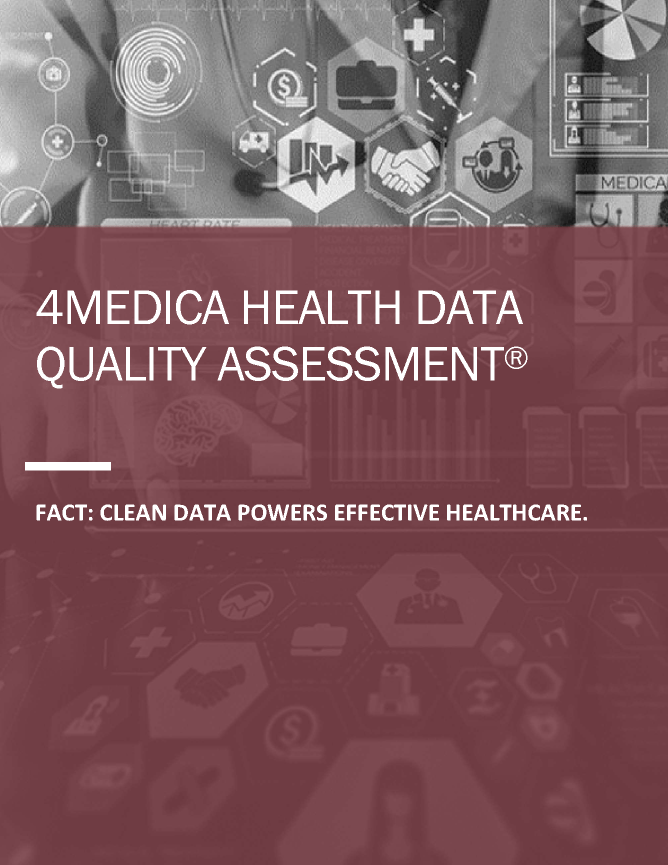Data plays a significant role at every stage of healthcare delivery, and master data management (MDM) is the critical strategy that ensures the safety, quality, and integrity of that data. Facets of MDM include consolidating, organizing, auditing, updating, de-duplicating, and managing disparate data from every source to create a single, centralized hub for accessing data.
In healthcare, MDM helps maintain the ever-expanding database of patient information. These records often span decades and can come from several sources, including international ones. But with master management, you can create a seamless integration between all data points, resulting in a more responsive and accurate provision of care.

A well-structured MDM strategy helps healthcare organizations increase patient safety, comply with regulatory statutes, and enhance operational efficiency. And in the era of digital transformations, it’s only a matter of time before MDM in healthcare shifts from organizational preference to standard practice.
Best Processes for Master Data Management in Healthcare Systems
While implementing MDM in healthcare systems can be easy with the right tools and support, there are a few points to keep in mind.
Data Governance
Data governance policies and procedures are the heart of effective MDM implementation. It’s important to establish clear data governance guidelines to maintain transparency, such as:
- Prioritizing patient privacy
- Defining data access to authorized users
- Ensuring patient data remains encrypted and secure
- Performing regular checks to maintain data quality and integrity
- Assigning data stewardship roles to ensure accountability and oversight
Data Standardization
Standardization and harmonization are two approaches to optimizing a process through consistent and streamlined operations. Given the scope of data in most healthcare organizations, MDM becomes crucial for assuring continuity of care, interoperability between devices, seamless integration, and ease of access. For instance, implementing standardized coding systems such as SNOMED CT and ICD-11 helps ensure anyone across the healthcare continuum can easily interpret patient records.
“Master” level harmonization also connects and integrates disparate sources to create a comprehensive view of patient data in one place.
Data Integration
Data integration involves extracting and transforming data from different sources into a single, centralized database that serves as the one source of truth regarding a patient’s medical information. Special techniques such as mapping, record linkage, and data matching help collect, standardize, and consolidate every bit of patient data into one authoritative source.
Data Quality Management
Quality data is essential to patient safety. Many things, including inaccurate entry, inconsistent data, and poor system integration, can compromise data quality. Regular checks are critical for preventing minor mistakes from morphing into more significant problems.
Quality management involves data cleansing, de-duplication, and validating and verifying patient information. Performing regular audits and monitoring data quality through various metrics also assists with quality management.
Why Proper Master Data Management in Healthcare Matters
MDM has several benefits for patient health outcomes and the overall operations of a healthcare organization. There are three main reasons why proper master management in healthcare matters.
Operational Efficiency & Cost Savings
MDM implementation directly correlates to a healthcare organization’s efficiency. Streamlining workflows and administrative processes allows healthcare providers to save time and money while focusing on higher-order duties.
For example, MDM reduces the need for redundant diagnostic tests or procedures through efficient data management. Accurate, updated records mean caregivers can instantly access previous test results or health history, eliminating unnecessary repeat testing. MDM also streamlines patient registration, appointment scheduling, and billing workflows. These further relieve staff of mundane tasks and help avoid administrative bottlenecks that can lead to inaccurate data management.
Operational efficiency is also linked to cost savings. The more optimized an organization’s resource allocation, the more money it’ll save. With a reduced administrative burden, healthcare professionals can focus more on patient care. This increases staff productivity and satisfaction, leading to higher staff retention rates.
Patient Safety and Care Coordination
Ensuring records are complete, updated, and accurate is fundamental to patient safety and care coordination. MDM identifies and eliminates inaccurate or outdated information, keeping patient records complete and current. This positively impacts health outcomes by dramatically reducing the possibility of medical errors or adverse events caused by incorrect data.
Regulatory Compliance & Reporting
With a full-service MDM, any healthcare organization can quickly fulfill regulatory compliance statutes to meet necessary standards. Part of MDM is performing audit trails on data changes, converting data to universal code, enforcing data governance policies, and encrypting protected data.
These measures ensure that any organization collecting personally identifiable information complies with the Health Insurance Portability and Accountability Act of 1996 and the General Data Protection Regulation privacy laws.
In addition to governmental oversight, private enterprises such as the Health Information Trust Alliance (HITRUST) have established common security frameworks to help organizations create, access, store, or exchange sensitive data properly. HITRUST-certified solutions such as 4medica’s comprehensive MDM help add an extra layer of trust and reliability for healthcare organizations.
How 4medica Can Help With Master Data Management in Healthcare
A partnership with 4medica will provide your organization with a full-service MDM program that offers comprehensive tools and expertise to face the evolving challenges of master data management in healthcare. Through our Health Data Quality Platform, you can integrate data analytics across multiple user interfaces to enhance data governance, standardization, integration, and quality management.
Your organizations can ensure accurate patient record matching, streamline data processes, and achieve interoperable healthcare data exchange by adopting 4medica’s MDM system. The platform also provides actionable insights to help healthcare professionals identify precisely where to make adjustments to increase efficiency.
Here’s a quick overview of the key features and capabilities of 4medica’s MDM solutions:
- Data enrichment
- Compliance metrics
- Virtual data stewards
- Referential data matching
- Real-time data processing
- Healthcare interoperability
- Data intelligence and analytics
- Data assessment and cleanup
- Advanced data matching algorithms
No one treats master data management in healthcare with the same level of care and detail. With over 25 years of experience, 4medica has helped healthcare organizations navigate the complexities of master data management by offering comprehensive solutions. We aim to help organizations better manage their data to improve patient outcomes and reduce overall costs.
4medica’s comprehensive MDM solutions, powered by state-of-the-art technology, will drastically change how you approach data management as we work toward making “one patient, one record” a reality.
